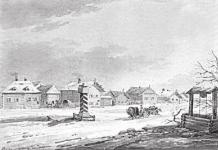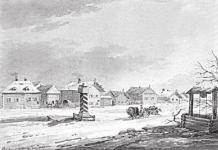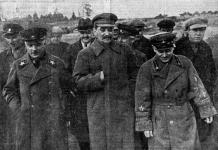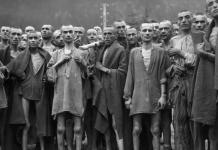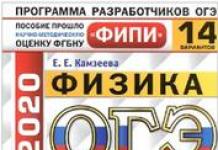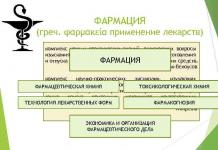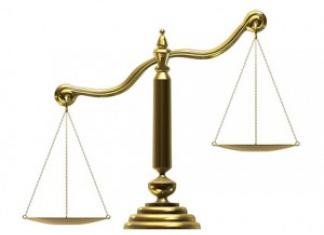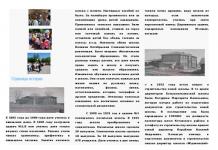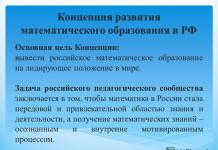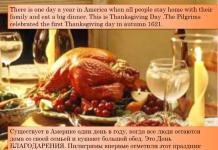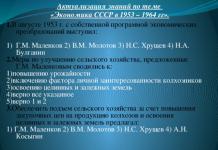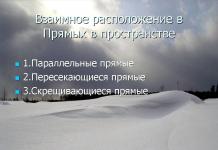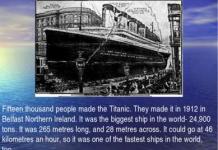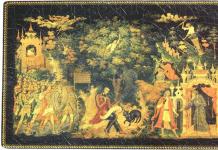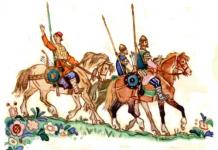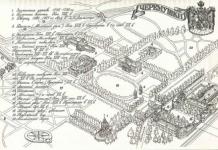other words:
country- country; nation- state, nation, country; land- country (territory), state
Abkhazia- Abkhazia; Armenia– Armenia; Azerbaijan- Azerbaijan; Belarus– Belarus; Estonia– Estonia; Georgia– Georgia; Kazakhstan- Kazakhstan; Kyrgyzstan– Kyrgyzstan; Latvia– Latvia; Lithuania– Lithuania; Moldova– Moldova; South Ossetia- South Ossetia; Tajikistan– Tajikistan; Transnistria- Transnistria; Turkmenistan– Turkmenistan; Ukraine- Ukraine; Uzbekistan– Uzbekistan
the USSR- USSR ( Soviet Union); CIS (Commonwealth of Independent States)– CIS (Commonwealth of Independent States); SCO (Shanghai Cooperation Organization)– SCO (Shanghai Cooperation Organization); UN (United Nations)– UN (United Nations Organization); NATO (North Atlantic Treaty Organization)– NATO (North Atlantic Treaty Organization); European Union- European Union
2 Names of nationalities in English (voiced words, transcriptions)
- Brazilian
["rʌʃ(ə)n] - Russian; Russian
["brɪtɪʃ] - British
[ɪ"tælɪən] - Italian
["spænɪʃ] - Spaniard
[ˌʤæp(ə)"niːz] - Japanese
["ʧaɪ" niːz] - Chinese
["ʤɜːmən] - German
– French
["meksɪk (ə) n] - Mexican
[ɔs "treɪlɪən] - Australian
[ə "merɪkən] - American
other words:
nationality- citizenship, nationality; nationality; citizenship– citizenship
Abkhazian- Abkhazian; Armenian- Armenian; Azerbaijani(an)- Azerbaijani; Byelorussian- Belarusian; Estonian- Estonian; Georgian- Georgians; Kazakh- Kazakh; Kirghiz- Kyrgyz; Latvian- Latvian; Lithuanian- Lithuanian; Moldovan- Moldavian; Ossetian- Ossetian; Tajik- Tajik; Transnistrian- Transnistrian; Turkman- Turkmen; Ukrainian- Ukrainian; Uzbek– Uzbek
...........................................
3 Video with the names of some countries in English
...........................................
4 Song with the names of states in English
...........................................
5 Names in English of 195 states of the world and their capitals
...........................................
6 Features of the use of words denoting the names of countries and nationalities in English
1. The names of some countries are used with the definite article: The Soviet Union- Soviet Union ( the USSR- USSR) the United States- United States ( the USA
- USA) The Netherlands- The Netherlands (Holland).
The article, as a rule, is not used before the names of countries consisting of one proper name ( Burma, Russia) or from a proper name with a definition.
2. Noun nationality applies only to humans: What is your nationality?- What is your nationality?
In relation to items produced in any country or originating from any country, the expressions are used to come from, to be made in:
This car is made in Sweden / comes from Sweden.
3. To indicate the nationality of people or things, the following can be used: a) adjective - Italian music, french wine.
She is Spanish (French, English); b) noun - an American, a Pole, a Dutchman.
All names of nationalities are capitalized (nouns and adjectives): an American- American; the English- the English; a French book- French book Japanese towns- Japanese cities.
4. Shape plural a word denoting a nationality, in combination with a definite article, denotes all representatives of this nationality: the Americans; the Finns, the Germans, the Poles, the swedes, the Albanians and etc.
To designate individual members of a nation, the word may be added to the name of nationalities man(in the masculine singular), woman(feminine singular) and men, women in plural: an Englishman- Englishman an English woman- Englishwoman two Englishmen- two Englishmen; a Frenchman- French, a Frenchwoman- Frenchwoman French women- two French women, etc.
5. Names of nationalities ending in -sh, -ch, -ss, -se do not accept endings -s in plural: the English- the English; the French- French people; the Dutch- the Dutch; the Swiss- the Swiss the Chinese- the Chinese; the Japanese- Japanese.
Nationality names ending in -se, have the same form in singular and plural: Chinese- Chinese two Chinese- two Chinese Swiss- Swiss two swiss two Swiss.
6. Word many used only with nouns denoting nationality, which have the plural form: many Poles, many Americans.
...........................................
7 Countries and nationalities in English idioms
Russian roulette- Russian roulette (bet on a shot in the temple from a pistol, in which five out of six charges are blank)
Russian boots- high boots (usually women's)
White Russian- ist. Russian white emigrant; whiteguard; mouth 1) Belarusian; 2) Belarusian language
Russian bast- bast, bast, bast
Russian doll- matryoshka
Russian hockey- Russian hockey; Hockey with a ball
Russian ball game- (Russian) lapta
Russian salad- Olivier salad
Russian egg- hard boiled egg with mayonnaise
Russian dressing- Russian seasoning, mayonnaise salad dressing (with pickles, etc.)
Russian bear- "Russian bear", a cocktail of vodka, cocoa liquor and cream
Russian tea– tea with lemon (served in glasses)
French- a rude obscene word or expression (preferably in the phrase: excuse (pardon) my French- sorry for the expression)
French leave- leaving without goodbye, imperceptible leaving; sudden departure, departure; to take French leave- leave without saying goodbye, leave in English
to assist in the French sense- iron. attend without taking part
french walk- Amer. slang. expulsion from the city; kicking out of a bar, saloon
french postcard- Amer. obscene postcard
french kiss- French Kiss
french door- glazed folding door
french roof- mansard roof
French telephone– handset with dialer
french curve- pattern
french fried potatoes- french fries, chips; syn. french fried(s), french fries(amer.) - potato chips (fried in oil)
French- kulin. cut into thin strips
french beans- beans
french plum- prunes
gin and French- a cocktail whose components are gin and dry vermouth
german silver- cupronickel
brother german- jur. brother
german ocean- mouth. North Sea
german meats– rubella
german badgerdog– dachshund
german shepherd/german sheep dog- German Shepherd
Italian roof- sloping roof
Italian operation– Italian plastic surgery (nose)
Italian clothes– lining material with satin face (Italian dressing)
Italian warehousemen- trade; brit. "Italian Warehousemen" (a trading company specializing in the sale of imported goods; as these companies were historically called in England, since the staff was predominantly Italian)
Chinese fire drill- Amer. turmoil, chaos
Chinese tobacco- slang. opium
Chinese accounting- fake accounting
Chinese tumbler– "Chinese acrobat", roly-poly toy
Chinese puzzle– Chinese puzzle (wooden or metal) puzzle; difficult task; Chinese charter
Chinese boxes- Chinese boxes (fitting one into the other)
Chinese copy- "Chinese copy", an exact reproduction of the object with all its shortcomings and advantages
Chinese Wall– Great Wall of China, Chinese wall, insurmountable barrier
overseas Chinese- a Chinese person living outside his homeland
Chinese red– orange-red color
Chinese gelatin- agar-agar
Chinese- Brit. unfold dish of Chinese cuisine; Chinese restaurant
Baboo English- neglected. babu English
rock english– Gibraltar slang (a mixture of English, Spanish and Arabic)
Wardour Street English- English speech, equipped with archaisms (by the name of a London street - the center of antique shops)
King's English– literary English, standard English
body English- Amer.; unfold gestures of spectators or players (during a sports game)
to murder the King's English- distort English
English disease- rare. spleen, blues
English sonnet- Amer. Shakespeare's sonnet (three quatrains and final couplet)
american plan– full board (in hotel)
ugly american- "nasty American"; American businessman abroad; American diplomat abroad; in Asia (by the title of a book by Burdick and Leberer); dip. "ugly American" (an American diplomat or businessman abroad who discredits foreign policy USA with its arrogance, false pride and lack of understanding with the local population)
un-American- commonly. alien to American customs or concepts; Amer. anti-American
all american- iron. 100% American, American from head to toe
white bread American- ordinary American
american organ– harmonium
Mexican stand(-)off- Amer.; unfold stalemate, stalemate (when none of the conflicting parties can win, but no one is ready to compromise, fearing thereby to admit defeat)
Mexican raise / Mexican promotion- slang. a promotion or change in status for the better without a pay increase
mexican breakfast- slang. breakfast, which is usually limited to a cigarette and a glass of water (because there is no money, due to a state of hangover or too much fatigue)
mexican athlete- slang. sports team candidate unlucky player
Mexican rank- military jarg. temporary rank
Mexican- Australian; slang. Queenslanders refer to New South Wales and Victoria as Mexicans (these states are further south than Victoria)
Australian ballot- secret ballot
Australian salute- Australian; unfold "Australian greeting" (greeting with a casual gesture of a raised hand, as if driving away flies
Australian bear- marsupial bear (koala)
Japanese auction- trade. Japanese auction (a kind of auction during which the auctioneer announces the starting price and begins to gradually raise it, and the buyers, in order to remain participants in the auction, must confirm their further participation by sending bids at each new price level)
spanish fly- spanish fly
spanish heel– Spanish (high) heel
spanish omelette- Spanish omelette (with potatoes or with onions and tomatoes)
the Spanish Main- ist. "Spanish mainland" (America in the Caribbean)
8 Exercises and games on the topic: countries and nationalities in English (flash)
National stereotypes through the prism of humor
Paradise is where cooks are French, mechanics are German, policemen are British, lovers are Italian and it is all organized by the Swiss.
Heaven is where the cooks are French, the mechanics are German, the policemen are English, the lovers are Italian, and the organizers are all Swiss.
Hell is where cooks are British, policemen are German, lovers are the Swiss, mechanics are French, and it is all organized by Italians.
Hell - where the cooks are English, the policemen are Germans, the lovers are Swiss, the mechanics are French, and the organizers are all Italians.
"Three proofs that Jesus was Jewish:
1. He went into his father's business.
2. He lived at home until the age of 33.
3. He was sure that his mother was a virgin, and his mother was sure that he was God.
Three proofs that Jesus Christ was a Jew:
He continued his father's business.
He lived at home until the age of 33.
He was convinced that his mother was a virgin, and his mother was convinced that he was God.
Three proofs that Jesus was Irish:
1. He never got married.
2. He never had a steady job.
3. His last request was for a drink.
Three proofs that Jesus was Irish:
He never married.
He never had a permanent job.
His last desire was to drink.
Three proofs that Jesus was Italian:
1. He talked with his hands.
2. He took wine with every meal.
3. He worked in the building trade.
Three proofs that Jesus was Italian:
He spoke with gestures.
He drank wine at every meal.
He was a carpenter.
Three proofs that Jesus was Black:
1. He called everybody brother.
2. He had no permanent address.
3. Nobody would hire him.
Three proofs that Jesus was a Negro:
He called everyone brothers.
He did not have a permanent place of residence.
Nobody took him to work.
Three proofs that Jesus was Puerto Rican:
1. His first name was Jesus.
2. He was always in trouble with the law.
3. His mother didn't know who his real father was.
Three proofs that Jesus was a Puerto Rican:
His name was Jesus.
He has always been in trouble with the law.
His mother did not know who his real father was.
Three proofs that Jesus was from California:
1. He never cut his hair.
2. He walked around barefoot.
3. He invented a new religion".
Three proofs that Jesus was from California:
He never cut his hair.
He always walked barefoot.
He founded a new religion.
Exercises and games on the topic: countries of the world (in English)
Poems with country names in English
I had a little nut tree,
Nothing would bear
But a silver nutmeg
And a golden pearl;
The King of Spain's daughter
Came to visit me
And all for the sake
Of my little nut tree.
Her dress was made of crimson
jet black was her hair,
She asked me for my nut tree
And my golden pearl.
I said, "So fair a princess
Never did I see
I'll give you all the fruit
From my little nut tree."
There came an old woman from France
Who taught grown-up children to dance;
But they were so stiff
She sent them home in a sniff,
This sprightly old woman from France.
I don't want to go to Mexico
No more, more, more.
There's a big fat policeman
At my door, door, door.
He grabbed me by the collar
He made me pay a dollar
I don't want to go to Mexico
No more, more, more.
History of immigration to the United States
After the discovery of America, tens of thousands of immigrants from England / England, France / France, Germany / Germany, Netherlands / the Netherlands, Spain / Spain and Portugal / Portugal hastened to the New World. Convicts were sent there to serve their sentences, children kidnapped from the English slums were sold. IN THE USA / the USA in the middle of the nineteenth century, participants in unsuccessful revolutionary battles arrived from Germany / Germany, Ireland / Ireland, Austria-Hungary / Austria-Hungary, France / France, Finland / Finland. A significant part of the population of America were the descendants of African slaves.
The first legislative act purposefully restricting immigration into the country was adopted in 1875: people who had previously committed crimes were prohibited from moving to the United States. The first immigration law was passed in 1882. It provided for the establishment of control over the "quality" of immigrants, and also forbade the entry of mentally ill and mentally underdeveloped people. This law also established a tax of 50 cents for each arriving immigrant. This amount later increased to $2 and then to $8. In fact, this tax still exists, but now it is considered a consular fee necessary for obtaining a visa. In 1882, ethnic Chinese were banned from moving to the United States. Only in 1943 this law was repealed. ethnic chinese now constitute one of the largest and most influential communities in the United States. In 1891, another law was passed, which added to the "black" list of the sick, the poor and polygamists. The law also established a procedure for mandatory medical examination of newly arrived immigrants, which still exists today. (Beginning in the 1990s, the US banned the entry of HIV-infected and AIDS patients.) These measures reduced the level of immigration to the US, but not for long.
At the beginning of the twentieth century, a new wave of immigrants swept America. This time, the authorities denied entry to the country to epileptics, tuberculosis patients, lunatics, beggars, anarchists and persons with mental and physical disabilities that "may affect their ability to earn a living." In 1917, the United States put up a barrier to the Indians / the Hinduos, Burmese / the Burmese, Thai / the Thailanders, Malays / the Malayans, Arabs / the Arabs and Afghans / the Afghans. In 1924, a fundamentally new restriction was introduced. The US authorities have provided citizens of each country with a quota for immigration. The quota was determined based on the results of the next population census. In 1934 Philippines / the Philippine, formerly a colony of the United States, gained independence. Then for the Filipinos / the Filipinos (Pilipinos), formerly considered Americans / the Americans, imposed restrictions on moving to the United States - no more than 50 people a year. With some modifications, the quota system is still in effect today. Although economic crisis- The Great Depression of the 1930s significantly reduced the flow of immigrants to the United States, with the outbreak of World War II, more than 1 million people from Europe moved to America in 1940 alone. In 1950, communists were banned from entering the United States.
However, the most important law that finally established the US immigration system was the Nationality and Immigration Act, passed in 1952. This law created a system of quotas, "categories of entry", fixed the reasons why an immigrant could be expelled from the country, and introduced stricter parameters for controlling the "quality" of immigrants.
In 1962 (after the revolution in Cuba / Cuba The United States for the first time established a policy of financial support for refugees - previously, all immigrants could rely only on themselves, their relatives and charitable organizations. Later, the United States began to accept refugees from Southeast Asia, China, and from the late 1970s - from the USSR / the USSR. In 1965, the US Congress created a "preference system" aimed at attracting skilled workers and professionals to the US. The "Law on Immigration" was passed. This law established the rules for resettlement in the United States.
In 1980, a special law on refugees was adopted, which established the rules for the admission of refugees. In 1990, the Nationality and Immigration Law underwent some changes. In 1994, US President Bill Clinton signed into law a law according to which foreigners who arrived in the United States without any documents can be immediately removed from the country, unless they apply for political asylum and / or prove that if they return to their native country, they face persecution on racial, religious, national, etc. grounds.
Since the September 11, 2001 terrorist attacks, immigration regulations and requirements have become especially strict. The duration of the tourist trip was reduced to 30 days. The rules for the stay of foreign students in the United States have been tightened. Law enforcement was given the power to arrest people for violating immigration laws, something previously done by US immigration. However, the biggest change in the US immigration system was the elimination of the Immigration and Naturalization Service and the integration of this structure into the new Department of Homeland Security.
Polls public opinion show that the 9/11 attacks also forced many Americans, despite being a first-generation immigrant, to reconsider their views on immigration. Today, the majority of US residents are in favor of reducing immigration, and only 10-15% consider it necessary to increase it.
This lesson is devoted to the analysis of countries and nationalities in English. From the lesson you will learn: the names of countries, ways of forming nationalities from the names of countries in English.
Popular questions to remember
Examples
Whats your nationality? - I "m Mexican. What is your nationality? - I'm Mexican.
Do you speak Italian? - He is from Italy. He is Italian. Do you speak Italian? - He's from Italy. He is Italian.
Suffixes for the formation of adjectives from the names of countries
Italy - Italy Italian – Italian Italian - Italian
As you can see, the same word, formed from the name of a country, can be used in different ways. This adjective is the name of the language of this country and the name of the nationality.
Many students of these derivative words use just the name of the country (Japan food, Spain singer, and so on). The name of the country cannot be an adjective, cannot describe the nationality or language of the country, so do not make such mistakes.
It should be noted that the name of the nationality and the language of the country do not always coincide. For example, in Brazil Brazil, although the Brazilians live Brazilian, but they speak Portuguese Portugese. Also with the Arab countries, where the nationality of the country does not coincide with the language.
Suffix -ian
Adjectives are formed using this suffix, regardless of what letter the name of the country ends in and where it is located. If the country name ends in -ia , then only -n is added:
Argentina Argentinian
Egypt Egyptian
Norway Norwegian
Ukraine Ukrainian
Brazil Brazilian
Russia Russian
Australia Australian
Indonesia Indonesian
Suffix -an
If the name of the country ends in -a, then only -n is added, if the name ends in another vowel, -an is added:
Korea Korean
Venezuela Venezuelan
Chile Chilean
Mexico Mexican
Suffix -ese
Basically, this suffix is used with Asian countries, some African countries, European countries and South America:
China Chinese
Vietnam Vietnamese
Japan Japanese
lebanon Lebanese
Sudan Sudanese
Taiwan Taiwanese
Portugal Portuguese
Suffix -ish
Some adjectives are formed with the -ish suffix:
Britain british
Scotland Scottish
Ireland Irish
Wales Welsh
Poland Polish
Turkey Turkish
Suffix -i
Almost all countries that go with this suffix are Islamic countries, or countries where Arabic is spoken.
Iraq Iraqi
Pakistan Pakistani
Thailand Thai
Kuwait Kuwaiti
Other suffixes
Other suffixes can also be called exceptions, since some of them are single, used to form one nationality.
France French
Greece Greek
Switzerland Swiss
The Netherlands Dutch
As mentioned earlier, many adjectives that can be formed using suffixes are the names of languages spoken in a particular country. In addition, these adjectives, combined with nouns, describe something specific to this country:
French literature French literature
Japanese food Japanese food
Mexican traditions Mexican traditions
Egyptian culture Egyptian history
How to talk about nationalities in general in English?
1. The + ADJECTIVE
From the article on definite articles in English, you know that the article the can be combined with adjectives when the adjective refers to a group of people:
The Chinese are very traditional. The Chinese are very traditional.
The Americans like fast food. Americans love fast food.
Have you noticed that in the given examples the word Americans is used with the ending -s, Chinese - without the ending? There are a few rules to remember about this:
1. If nationality-adjectives have endings –sh, –ch, –ss, –ese, -i then they do not have a plural form (no -s is added to them):
- the French - French
- the Swiss
- the Japanese - Japanese
- the Scottish
- the Iraqi - Iraqis
- the Israeli - Israelis
2. Adjectives ending in -an and some others have plural forms. These adjectives (unlike the ones above) can also act as nouns:
- the Ukrainians - Ukrainians
- the Brazilians
- the Greeks - Greeks
- the Thais - residents of Thailand Scotland - Scots
- an American - American
- an Italian - Italian
- a Pole - Pole
- a Turk - Turk
- a Spaniard - Spaniard
- a Briton - British
- a swede
- an English boy
- a Chinese woman
- a French man (may be spelled together: a Frenchman)
- an English man (may be written together: an Englishman)
Spain–the Spaniards Spain - Spaniards
Turkey - the Turks
If you are talking about one person, then if this nationality has a noun, you can use it:
If there is no noun, or you want to clarify the gender of the person, then use the scheme: ADJECTIVE + MAN/ WOMAN/ BOY/ GIRL
There is a term in English demonym(from Greek demos- the people and name- name). This term is intended to describe people living in a certain area. These are the names of nationalities, ethnic groups, residents of a particular area or a particular city. All of the above adjectives and nouns derived from country names are demonyms. Demonyms are formed mainly by suffixing:
London–Londoner London - Londoner
Kiev–Kievan Kyiv - a resident of Kyiv
Rome–Roman Rome - a resident of Rome
As you can see, the topic "Countries and nationalities in English" is not so difficult if you consider this issue carefully.
In the article we will talk about how countries are called in English, their inhabitants, as well as languages. How to say "Russia", "Russian (person)" and "Russian language"? Do all countries follow the same rule? And are there any pitfalls here? Let's find out!

So, for each country (or region), we will consider four words:
1) The name of the country (region) itself: Russia, England, Great Britain, Germany, Asia, etc.
2) The name of the resident of this country (region) in singular: Russian, English, British, German, Asian, etc.
3) The name of all the inhabitants of the country (region): Russians, British, British, Germans, Asians, etc.
4) Adjectives formed from the name of the country (region): "what?" - Russian, English, British, German, Asian, etc.
Usually, №2
and №3
match. For example: American(American) and American(American).
Besides, №3
and №4
usually differ only in the plural ( -s at the end): American(American) and Americans(Americans).
|
Country / Region |
Adjective | A citizen | Inhabitants |
|
Australia |
Australian [ɒˈstreɪliən] |
an Australian [ənɒˈstreɪliən] |
the Australians [ði ɒˈstreɪliənz] |
|
America (America / USA) [əˌmerɪkə] |
American [əˈmerɪkən] |
an American [ənəˈmerɪkən] |
the Americans [ði əˈmerɪkənz] |
|
Belgium [ˈbeldʒəm] |
Belgian [ˈbeldʒən] |
a Belgian [əˈbeldʒən] |
the Belgians [ðəˈbeldʒənz] |
|
Brazil
|
Brazilian
|
a Brazilian [əbrəˈzɪlɪən] |
the Brazilians [ðəbrəˈzɪlɪənz] |
|
Europe [ˈjʊərəp] |
European [ˌjʊərəˈpɪən] |
a European [əˌjʊərəˈpi:ən] |
the Europeans [ðə ˌjʊərəˈpɪənz] |
|
Italy [ˈɪtəli] |
Italian [ɪˈtæljən] |
an Italian [ənɪˈtæljən] |
the Italians [ði ɪˈtæljənz] |
|
Hungary [ˈhʌŋɡr̩i] |
Hungarian [ˌhʌŋˈɡeərɪən] |
a Hungarian [əˌhʌŋˈɡeərɪən] |
the Hungarians [ðə ˌhʌŋˈɡeərɪənz] |
|
Norway [ˈnɔːweɪ] |
Norwegian
|
a Norwegian [ə nɔːˈwiːdʒən] |
the Norwegians [ðə nɔːˈwiːdʒənz] |
|
Greece [ˈɡriːs] |
Greek [ˈɡriːk] |
a Greek [əˈgri:k] |
the Greeks [ðəˈɡriːks] |
|
Iraq [ɪˈrɑːk] |
Iraqi [ɪˈrɑːki] |
an Iraqi [ənɪˈrɑːki] |
the Iraqis [ði ɪˈrɑːkɪz] |
|
Israel [ˈɪzreɪl] |
Israeli [ɪzˈreɪli] |
an Israeli [ənɪzˈreɪli] |
the Israelis [ði ɪzˈreɪlɪz] |
|
Thailand [ˈtaɪlænd] |
Thai
|
a Thai [ə taɪ] |
the Thais [ðə taɪz] |
|
China [ˈtʃaɪnə] |
Chinese
|
a Chinese [ə tʃaɪˈniːz] |
the Chinese [ðə tʃaɪˈniːz] |
|
Portugal [ˈpɔːtʃʊɡl̩] |
Portuguese [ˌpɔːtʃʊˈɡiːz] |
a Portuguese [əˌpɔːtʃʊˈɡiːz] |
the Portuguese [ðə ˌpɔːtʃʊˈɡiːz] |
|
Russia [ˈrʌʃə] |
Russian [ˈrʌʃən] |
a Russian [əˈrʌʃən] |
the Russian s [ðəˈrʌʃənz] |
|
Switzerland [ˈswɪtsələnd] |
Swiss
|
a Swiss [ə swɪs] |
the Swiss [ðə swɪs] |
But it is not always the case. Separately, we present "difficult" cases that do not correspond to this rule. Please note that where in English the name of a resident differs depending on gender (for example, "British" and "British"), both options are translated into Russian. If there is no such difference in English, then I translate into Russian with the "male" version ("Spaniard").
|
Country / Region |
Adjective | A citizen | Inhabitants |
|
Britain [ˈbrɪtn̩] |
british [ˈbrɪtɪʃ] |
a British man/woman [ə ˈbrɪtɪʃ mæn/ˈwʊmən] |
the British [ðəˈbrɪtɪʃ] |
|
England [ˈɪŋɡlənd] |
English [ˈɪŋɡlɪʃ] |
an Englishman/Englishwoman [ən ˈɪŋɡlɪʃmən/ˈɪŋɡlɪʃwʊmən] |
the English [ði ˈɪŋɡlɪʃ] |
|
France
|
French
|
a Frenchman/Frenchwoman [ə ˈfrentʃmən/ˈfrentʃwʊmən] |
the French [ðə frentʃ] |
|
Ireland [ˈaɪələnd] |
Irish [ˈaɪrɪʃ] |
an Irishman/Irishwoman [ən ˈaɪrɪʃmən/ˈaɪrɪʃwʊmən] |
the Irish [ðiˈaɪrɪʃ] |
|
Spain
|
Spanish [ˈspænɪʃ] |
a Spaniard [əˈspænɪəd] |
the Spanish [ðəˈspænɪʃ] |
|
The Netherlands [ðə ˈneðələndz] |
Dutch
|
a Dutchman/Dutchwoman [ə ˈdʌtʃmən/ˈdʌtʃwʊmən] |
the Dutch [ðəˈdʌtʃ] |
|
Wales
|
Welsh
|
a Welshman/Welshwoman [ə ˈwelʃmən/ˈwelʃwʊmən] |
the Welsh [ðə welʃ] |
|
Denmark [ˈdenmɑːk] |
Danish [ˈdeɪnɪʃ] |
a Dane [ə deɪn] |
the Danes [ðə deɪnz] |
|
Finland [ˈfɪnlənd] |
Finnish [ˈfɪnɪʃ] |
a Finn [əfɪn] |
the Finns [ðə fɪnz] |
|
Japan
|
Japanese [ˌdʒæpəˈniːz] |
a Japanese [əˌdʒæpəˈniːz] |
the Japanese [ðə ˌdʒæpəˈniːz] |
|
Poland [ˈpəʊlənd] |
Polish [ˈpɒlɪʃ] |
a Pole [əpəʊl] |
the Poles [ðə pəʊlz] |
|
Sweden [ˈswiːdn̩] |
Swedish [ˈswiːdɪʃ] |
a swede [ə swiːd] |
the swedes [ðə swiːdz] |
|
Turkey [ˈtɜːki] |
Turkish [ˈtɜːkɪʃ] |
a Turk [ətɜːk] |
the Turks [ðə tɜːks] |
Arabic and Arabs
Separately, we will discuss the situation with the Arabs.
When we talk about Arabic, we use the word Arabic([ˈærəbɪk]/[`rebik]):
My friend George studies Arabic.
My friend George is studying Arab language.
A common adjective ("Arabic" in the sense of "pertaining to Arab countries") is Arab([ˈærəb]/[`ereb]):
I've been to several Arab countries.
I have been to several Arab countries
The band blends modern jazz with traditional Arab music.
The band mixes modern jazz with traditional Arabic music.
Word Arabian([əˈreɪbiən]/[er`eybian] "Arabic") only occurs in certain established names: Arabian Peninsula(Arabian Peninsula) Arabian horse(Arab horse) Arabian Sea(Arabian Sea), etc.
About Britain and its regions
Please note that Britain ( Britain) is not the same as England! "British" can be called a person from England, Scotland, Wales or Northern Ireland, but "Englishman" - only a native of England!
Since the Republic of Ireland is not part of the UK, its representatives are called the word "Irish" ( Irish).
Finally, the very word "British" ( british man/woman) is often abbreviated in journalism or colloquial speech to informal Brit:
Judging by the pronunciation, he's a Brit.
According to the pronunciation, he British.
That's all:). Good luck with your travels to all corners of the world! Now you know who you will meet there and what languages they speak.
In this article, we will touch on the topic nationality in english. Along with the nationalities in the summary tables, we present the countries, as well as exceptions according to the method of word formation of the noun that defines the representative of the country.
Nationality education in English
adjectives denoting nationality, can turn into a noun, denoting a representative of a given nationality, and can be used in the singular and plural.
Rules for the formation of nationality:
- -an , then in the singular the form of the word is preserved, and in the plural the ending is added -s ;
- if the adjective ends in -se , -ss , then the singular and plural forms of the noun that is formed from it coincide.
Below is a table of the formation of nationality from adjectives according to the above rules.
| Country | Adjective | Country Representative | The whole nation as a whole |
|---|---|---|---|
| 🔊 Russia | 🔊 English | 🔊 in English | 🔊 the Russians |
| 🔊America (the USA) | 🔊 American | 🔊 an American | 🔊 the Amaericans |
| 🔊 Belgium | 🔊 Belgian | 🔊 a Belgian | 🔊 the Belgians |
| 🔊 Brazil | 🔊 Brazilian | 🔊a Brazilian | 🔊 the Brazilians |
| 🔊Bulgaria | 🔊 Bulgarian | 🔊 a Bulgarian | 🔊 the Bulgarians |
| 🔊Europe | 🔊 European | 🔊 European | 🔊 the Europeans |
| 🔊Italy | 🔊 Italian | 🔊 in Italian | 🔊 the Italians |
| 🔊Germany | 🔊 German | 🔊 a German | 🔊 the Germans |
| 🔊 Kenya | 🔊 Kenyan | 🔊 a Kenyan | 🔊 the Kenyans |
| 🔊 Morocco | 🔊Moroccan | 🔊 a Moroccan | 🔊 the Moroccans |
| 🔊 Norway | 🔊Norwegian | 🔊a Norwegian | 🔊 the Norwegians |
| 🔊 Tyrol | 🔊 Tyrolean | 🔊 a Tyrolean | 🔊 the Tyroleans |
| 🔊Greece | 🔊 Greek | 🔊 a Greek | 🔊 the Greeks |
| 🔊 Iraq | 🔊 Iraqi | 🔊 an Iraqi | 🔊 the Iraqis |
| 🔊Israel | 🔊 Israeli | 🔊 Israeli | 🔊 the Israelis |
| 🔊Thailand | 🔊 Thai | 🔊 a Thai | 🔊 the Thais |
| 🔊 China | 🔊Chinese | 🔊 a Chinese | 🔊 Chinese |
| 🔊 Congo | 🔊 Congolese | 🔊 a Congolese | 🔊 the Congolese |
| 🔊 Portugal | 🔊 Portuguese | 🔊 a Portuguese | 🔊 the Portuguese |
| 🔊Switzerland | 🔊 Swiss | 🔊 a Swiss | 🔊 Swiss |
Exceptions to the rules for the formation of nationalities in English
In addition to the formation of a nationality according to the rules defined above, there are exceptions. Nationality education is not general rules presented in the table below.
| Country | Adjective | Country Representative | The whole nation as a whole |
|---|---|---|---|
| 🔊 Britain | 🔊 British | 🔊 a British person (🔊 Briton) | 🔊 the British |
| 🔊 England | 🔊 English | 🔊 an Englishwoman/man | 🔊 English |
| 🔊 France | 🔊 French | 🔊 a Frenchman/woman | 🔊 French |
| 🔊Ireland | 🔊 Irish | 🔊an Irishwoman/man | 🔊 the Irish |
| 🔊 Spain | 🔊 Spanish | 🔊 a Spaniard | 🔊 Spanish |
| 🔊 The Neterlands / 🔊 Holland | 🔊 Dutch | 🔊 a Dutchwoman/man | 🔊 the Dutch |
| 🔊Wales | 🔊 Welsh | 🔊 a Welshman/woman | 🔊 the Welsh |
| 🔊 Danmark | 🔊 Danish | 🔊 a Dane | 🔊 the Danes |
| 🔊 Finland | 🔊 Finnish | 🔊 a Finn | 🔊 the Finns |
| 🔊 Poland | 🔊 Polish | 🔊 a Field | 🔊 the Poles |
| 🔊 Scotland | 🔊 Scottish, 🔊 Scotch | 🔊 a Scott | 🔊 the Scots |
| 🔊 Sweden | 🔊 Swedish | 🔊 a swede | 🔊 the swedes |
| 🔊 Turkey | 🔊 Turkish | 🔊 a Turk | 🔊 the Turks |
We repeat names of countries, capitals and nationalities in English.
You will also get acquainted with the suffixes of nationalities: -an, -ese, -ish:
countries and nationalities. English words on the topic "Countries and nationalities". List #1
Countries (Countries) - Nationality (Nationality) - Language (Language):
Remember:
country - country
nationality - nationality
language
- Russia (Russia) - (the) Russians (Russians) - the Russian language (Russian language)
- Great Britain - (the) British - the British English (British English)
- America - (the) American (s) - the American English (American English)
- France—(the) French—the French language
- Germany—(the) German(s)—the German language
- Italy - (the) Italians - the Italian language
- Greece - (the) Greek - the Greek language
- Turkey—(the)Turkish—the Turkish language
- Egypt - (the) Egyptian(s) - the Arabic language
- Spain—(the)Spanish—the Spanish language
- Japan - (the) Japanese - the Japanese language
- China - (the) Chinese - the Chinese language
- Australia - (the) Austarlian(s) - the Australian English (Australian English)
Repeat the articles with the names of the countries -
Now let's repeat countries in English and their capitals:
Countries (Countries) - Capitals (Capitals):
- Russia - Moscow [‘mɔskəu]
- Great Britain-London
- America-Washington D.C. [‘wɔʃɪŋtən di si]
- France-Paris
- Germany-Berlin
- Italy-Rome
- Greece-Athens [‘æθɪnz]
- Turkey - Ankara
- Egypt - Cairo [‘kaɪrəʊ]
- Spain-Madrid
- Japan-Tokyo [‘təʊkɪəʊ]
- China - Beijing [ˌbeɪ'ʤɪŋ]; Peking
- Australia - Canberra [‘kænb(ə)rə]
Remember the main attractions of these countries —
countries and nationalities. Exercises
Exercise 1. Translate into English.
- Italy / He is from Italy. / He is Italian.
- Spain / He is from Spain. / He is Spanish.
- England / He is from England. / He is an Englishman.
- Germany / He is from Germany. / He is German.
- France / He is from France. / He is French.
Exercise 2.
- What do we call people who live in France? — People who live in France are French.
- What language do people speak in France? — People who live in France speak French.
Exercise 3Ask and answer questions.
SAMPLE. What is the capital of Great Britain? — The capital of Great Britain is Moscow.
Exercise 4 Ask and answer questions. Use an expression be famous for- Be known for...
SAMPLE. What is Great Britain famous for? — Great Britain is famous for its queens.
Exercise 5 Answer questions about yourself.
- Where are you from?
- What is your nationality?
- What language do you speak?
- What is the official language in your country?
- What is the capital of your country?
- What is your country famous for?
- What are your people like?
Exercise 6 Imagine that you are attending an international conference. Say a few words about yourself.
- Let me introduce myself. - Let me introduce myself.
- My name is ... - My name is ...
- I am from Russia. - I'm from Russia.
- My country is famous for its vast territory. — My country is famous for its vast territory.
- The capital of Russia is Moscow. - The capital of Russia is Moscow.
- People who live in Russia speak different languages but the official language is Russian. - People who live in Russia speak different languages ...


